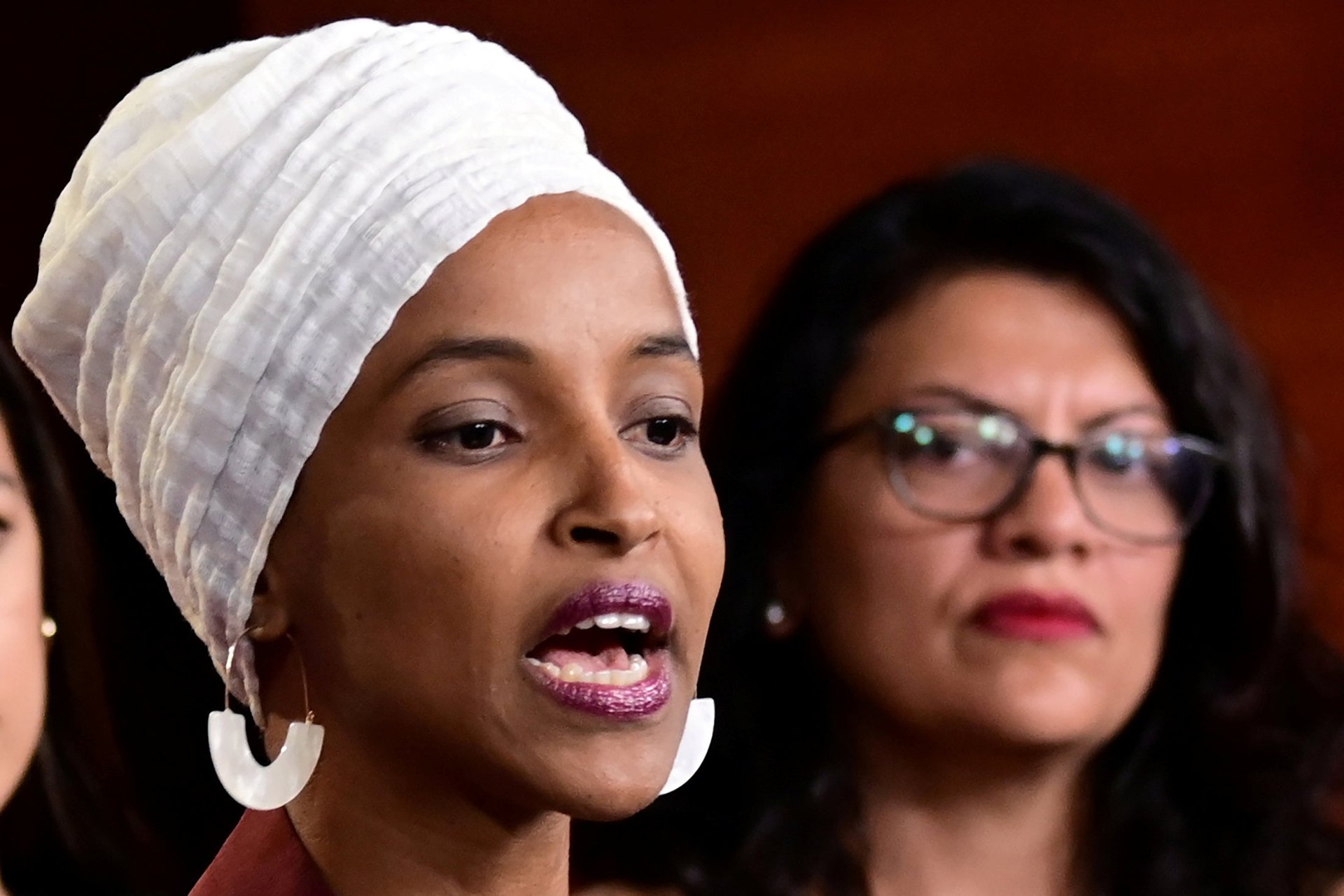Why Israel has banned two US congresswomen, explained
Israel’s decision to bar two sitting members of the US Congress is grounded in a 2017 law that blocks anyone who has publicly expressed support for a boycott of Israel from entering the country, at the government’s discretion. Congresswomen Rashida Tlaib of Michigan and Ilhan Omar of Minnesota, both of whom are Muslim, have voiced support for the Boycott, Divestment, and Sanctions (BDS) movement against Israel over its treatment of Palestinians.


Israel’s decision to bar two sitting members of the US Congress is grounded in a 2017 law that blocks anyone who has publicly expressed support for a boycott of Israel from entering the country, at the government’s discretion. Congresswomen Rashida Tlaib of Michigan and Ilhan Omar of Minnesota, both of whom are Muslim, have voiced support for the Boycott, Divestment, and Sanctions (BDS) movement against Israel over its treatment of Palestinians.
President Donald Trump exerted intense pressure on Israel to bar Tlaib and Omar from entry.
Israeli authorities later said Tlaib, who is of Palestinian descent, would be allowed to enter to see her 90-year-old grandmother in the occupied West Bank. Tlaib had written to Israel’s interior minister Aryeh Deri yesterday that she would “respect any restrictions and will not promote boycotts against Israel during my visit.” She subsequently cancelled the trip.
Trump’s intervention—calling on a foreign government to bar American citizens from entering their country—has been widely criticized by Democratic lawmakers. Elizabeth Warren, the first Democratic candidate running for president to weigh in, said the move didn’t “advance [Israel’s] case as a tolerant democracy or unwavering US ally.” Republican senator Marco Rubio, who authored an anti-BDS bill, also called Israel’s decision a “mistake.”
Since the 2017 law was passed, 14 people, according to an Israeli official, have been blocked from entering the country for supporting the boycott movement, including French politicians and elected members of the European Parliament.
Here’s our guide on what the BDS movement is all about, and how governments have responded to it:
When was BDS launched?
In 2005, a year after the International Court of Justice issued an advisory opinion that Israel’s separation wall in the West Bank was illegal under international law. The movement was launched by about 170 Palestinian civil society groups and cites as inspiration the US civil rights movement and South Africa’s anti-apartheid movement.
What is it calling for?
The first of its three main demands is for Israel to end its occupation of the West Bank, East Jerusalem, Gaza, and the Syrian Golan Heights. UN Security Council Resolution 242, adopted unanimously—including by the US—in November 1967 calls on Israel to withdraw from territories it occupied during the Six-Day War.
The second demand is full equality for the roughly 20% of Israeli citizens who are Palestinian.
The third demand is the right of return for Palestinian refugees—now more than seven million people—following mass expulsion when Israel was created in 1948. Palestinians mark the event each year as the Nakba, or “catastrophe.” (Israel’s Law of Return, passed in 1950, grants Jews anywhere in the world the right to immigrate to Israel.)
BDS works to mobilize support aimed at encouraging countries, businesses, and academic and cultural institutions to cut ties with Israel unless those demands are met.
How have governments responded?
US leaders—including president Trump and lawmakers of both the Republican and Democratic parties—have for years expressed strong opposition to BDS. More than half of US states have passed laws requiring that companies doing business with their states’ governments affirm that they do not participate in the boycott movement. Congress also passed a resolution earlier this year opposing BDS, by a margin of 398-17.
Other Western countries—including Canada and Germany—have passed motions at the federal level that oppose the boycott of Israel. France has also used its 2003 Lellouche hate speech law against BDS activism. (Dublin, on the other hand, became in 2018 the first European capital to endorse BDS. The city council of Valencia in Spain passed a pro-BDS resolution the same year.)
South Africa’s government backs the BDS movement. In 2012, the African National Congress party threw its weight behind BDS and in 2018 reaffirmed its support.
Is BDS having an impact?
Two experts at the Brookings Institution looked last year at the economic impact of the boycott movement on Israel, and concluded that anything short of official sanctions by Israel’s large economic partners is unlikely to have a major impact. Many Arab states boycott Israel, though most have dropped the more economically damaging secondary boycott that pushed companies to avoid doing business with Israel. “The legacy of the Arab boycott also left the Israeli economy adept at dealing with [movements like BDS],” they noted.
On the other hand, BDS may have helped turn liberal thought more pro-Palestinian in parts of the world. It has also pushed major global companies to cease operations in settlements in the West Bank.